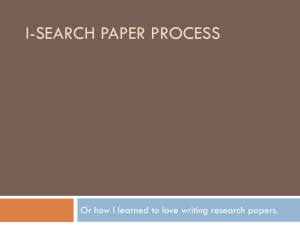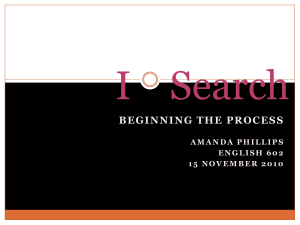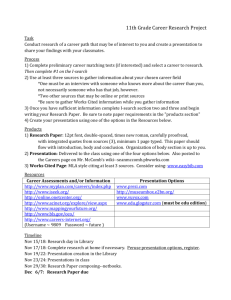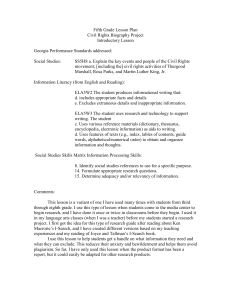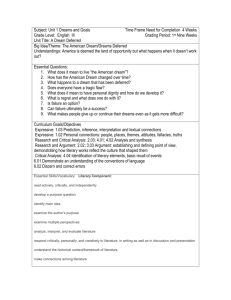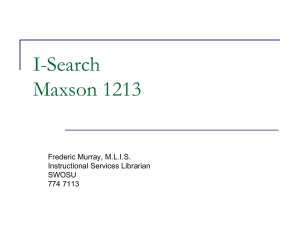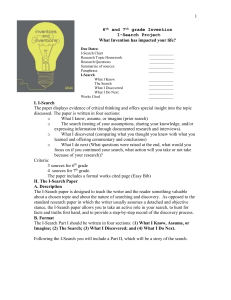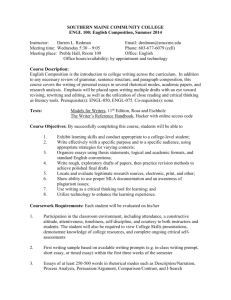I-Search Paper PROCESS
advertisement
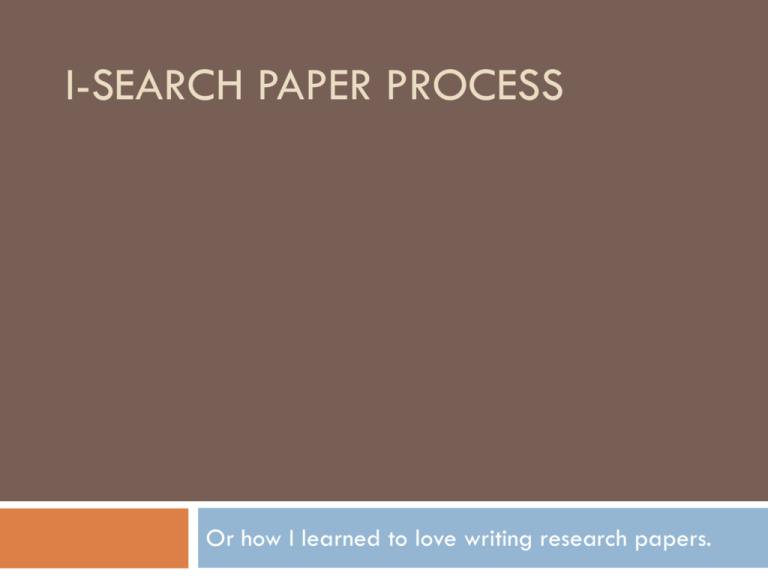
I-SEARCH PAPER PROCESS Or how I learned to love writing research papers. Reflective Essay (5% of course grade) This paper is your first foray into the process. In it you write about what you want to be when you grow up and why. Telling a story is paramount. Tell the story of when and where and why you first knew you wanted to pursue a certain occupation/career. Answering the questions from the handout helps. Generating material you can use to keep the “I” in your I-search paper is required! Observation Essay (10% of course grade) This paper becomes the first outside source for your I-search paper. Think of it as field research, a chance to create a source instead of retrieving it from the Library or the Internet. Think of it as a chance to learn from a professional who is doing as close to what you want to do as you can find. HOW to look for ADDITIONAL Sources Develop a Research Question similar to the one in the “How to Write an I-search Paper” handout. e.g. How do I become an Architect? Develop sub-questions to help you determine definable tasks and goals. (Take Education as an example.) What type of schooling will it take for me to become an architect? What training or certification will I need? What kind of ongoing training or qualifications will I need to remain an architect? PLACES to look for ADDITIONAL Sources Library (NWACC or other physical library) Reference texts (non-circulating) Books (circulating) Periodicals (magazines, newspapers or journals) Databases (subscription services paid for through our library and accessed through the library portal. CD-ROM, VHS or DVD (Audio-Visual Sources) Virtual Libraries NetLibrary (See Ackerman handout) Ebrary (See Ackerman handout) Places to look for Sources (cont.) Internet Occupation Outlook Handbook. Blogs by individuals in the profession with clear experience and credentials. Professional organization web sites. Personal web sites, as long as the professional qualifications and experience are listed. Articles in online magazines, newspapers or journals. Places to look for Sources (cont.) Other Interview a professional. Talk to teachers in the equivalent program here at NWACC or any college or university. Find program brochures, flyers or newsletters that describe a program you wish to enter. Use class lecture notes from a course in your major. Look for government documents in your local public library. Look for TV shows, Films or podcasts on your topic. Annotated Bibliography (15% of course grade) (see separate PowerPoint on my web site) This is an alphabetized list of sources with paragraphs after each source that… summarize the content, assess the source’s relevance, recentness and reliability and then reflect on how you will use the source in your paper. Annotations are written in complete sentences and paragraphs to help you digest your information and plan where to use it in your I-Search paper. I-Search Paper Writing Suggestions Keep track of the “I” in your paper. Avoid the implied “you.” Avoid the general set of instructions for anyone to become an architect, doctor, etc. Remember to blend your sources with YOUR thoughts, ideas, comments and reactions. The FINISHED I-search paper (20% of your course grade!) Reflective Essay + Observation + Other Sources = Completed I-Search paper
